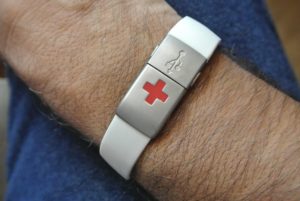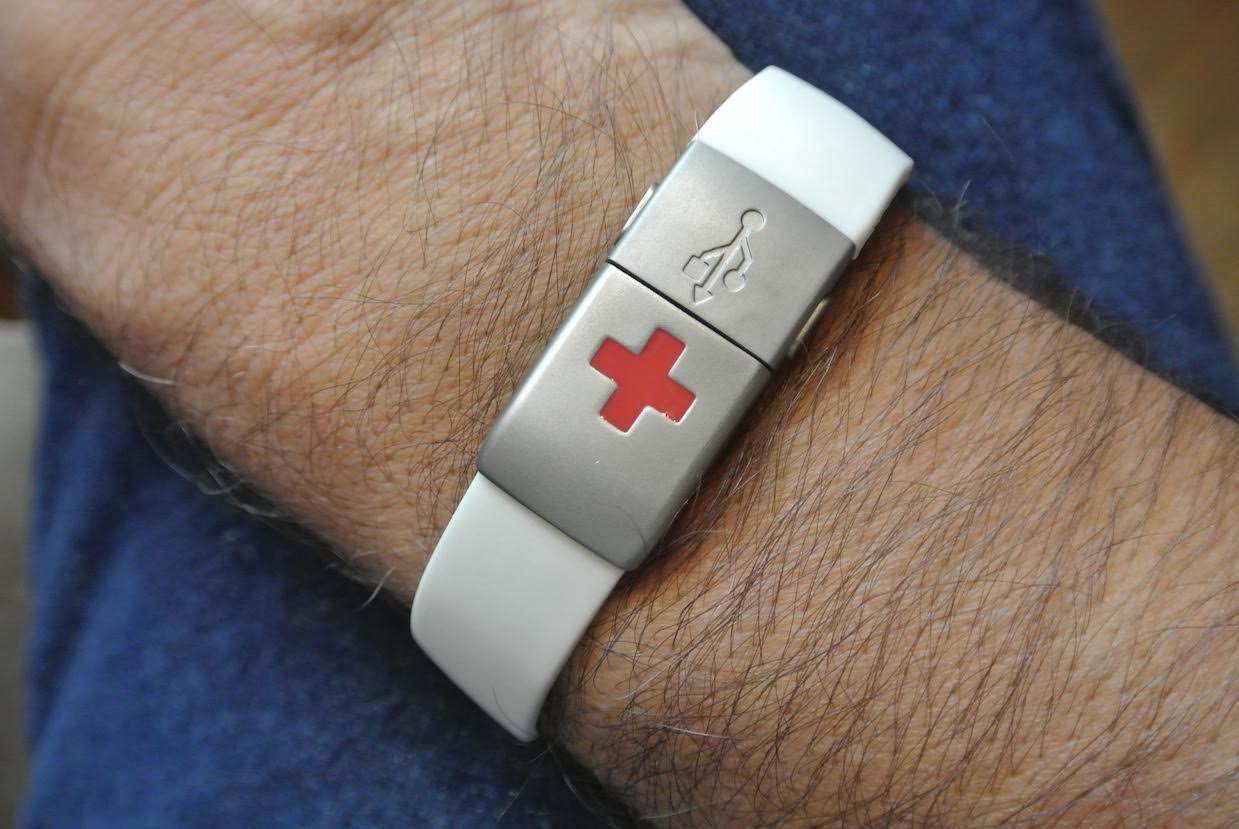Jill Overmyer
For the elderly or anyone with a potentially life-threatening medical condition, medical alert bracelets can be lifesavers. Traditionally, the bracelets have been engraved with important information like medical conditions, medication allergies and emergency contact information. Advances in technology, however, are turning bracelets into miniature data repositories that let emergency personnel plug into your medical history.

Wearable data
When it comes to medical emergencies, the more information the emergency workers have at their disposal, the better. Some medical jewelry, therefore, now includes flash drives or PINs that let emergency responders access your information online, including details of your health insurance coverage.
Some examples include:
- The CARE Medical History Bracelet. This bracelet’s fastener actually is a USB drive. The wearer uses the included software to build a medical profile (emergency contact information, health insurance information, medical conditions and allergies) and then transfers it to the bracelet. Emergency responders can plug the bracelet into a computer and get instant access to the information.
- The Online Medical Registry. With this system, run by the company American Medical ID, you can add pertinent medical and contact information as well as instructions for care into a secure online database. Your medical bracelet is engraved with a personal identification number that lets medical personnel access your information.
- The Smart Medical ID Bracelet. The underside of this bracelet has a 1 GB USB drive. That’s enough space to fit your emergency contact information, your physician’s contact information, your blood type and your medical history, as well as legal documents like a do-not-resuscitate (DNR) order.
Life-saving bling
According to American Medical ID, medical alert bracelets usually are recommended for those with:
- Alzheimer’s disease.
- Medication allergies.
- Cardiac conditions.
- Implanted medical devices like pacemakers.
- Epilepsy.
- Hearing or sight impairments.
- Elevated risk of stroke or heart attack.
- Kidney failure.
- Any rare disease.
Medical alert bracelets can reduce medical errors and misdiagnoses. Hunting down information about your allergies and previous care can waste time when seconds count, and if you’re unconscious when emergency workers arrive, an identification bracelet can tell them what you can’t.
If you prefer paper medical records, once your electronic records are online, you can print out copies for your own files or give them to family members.
